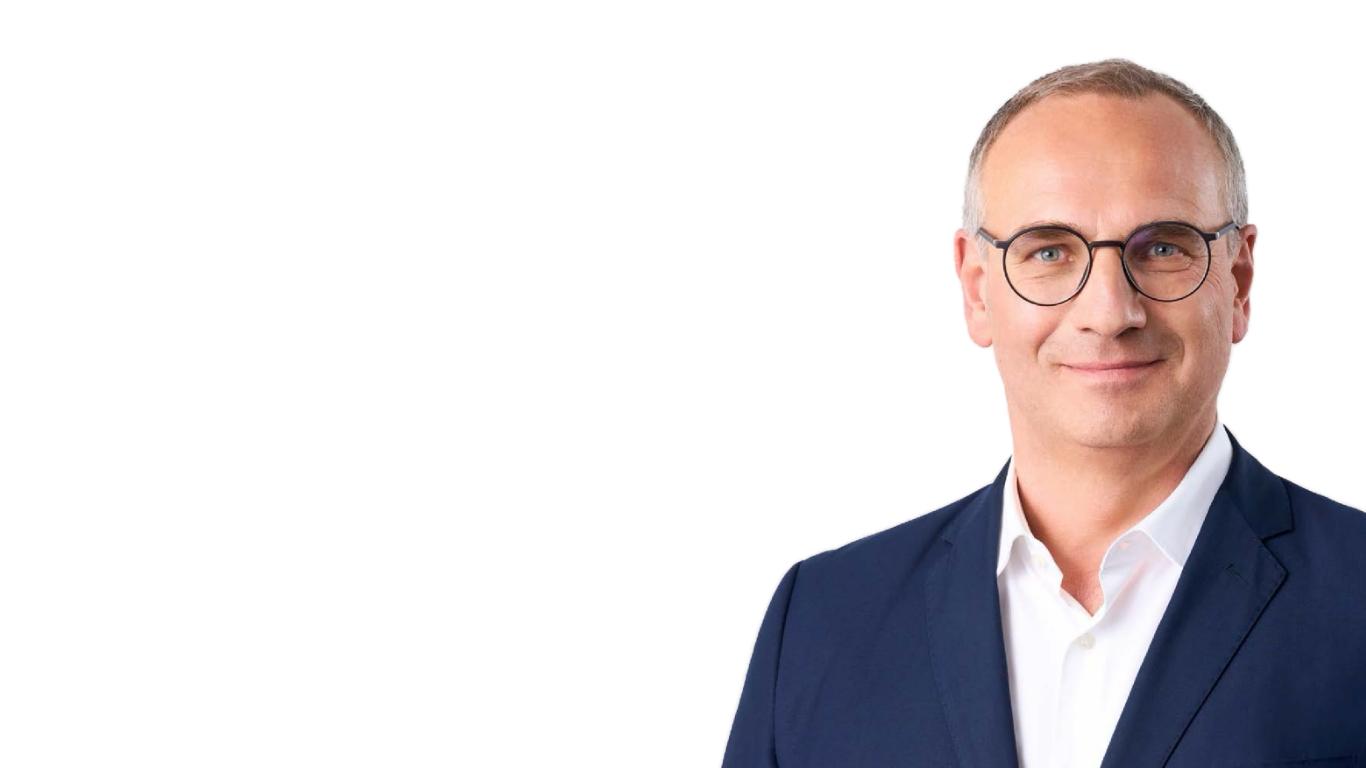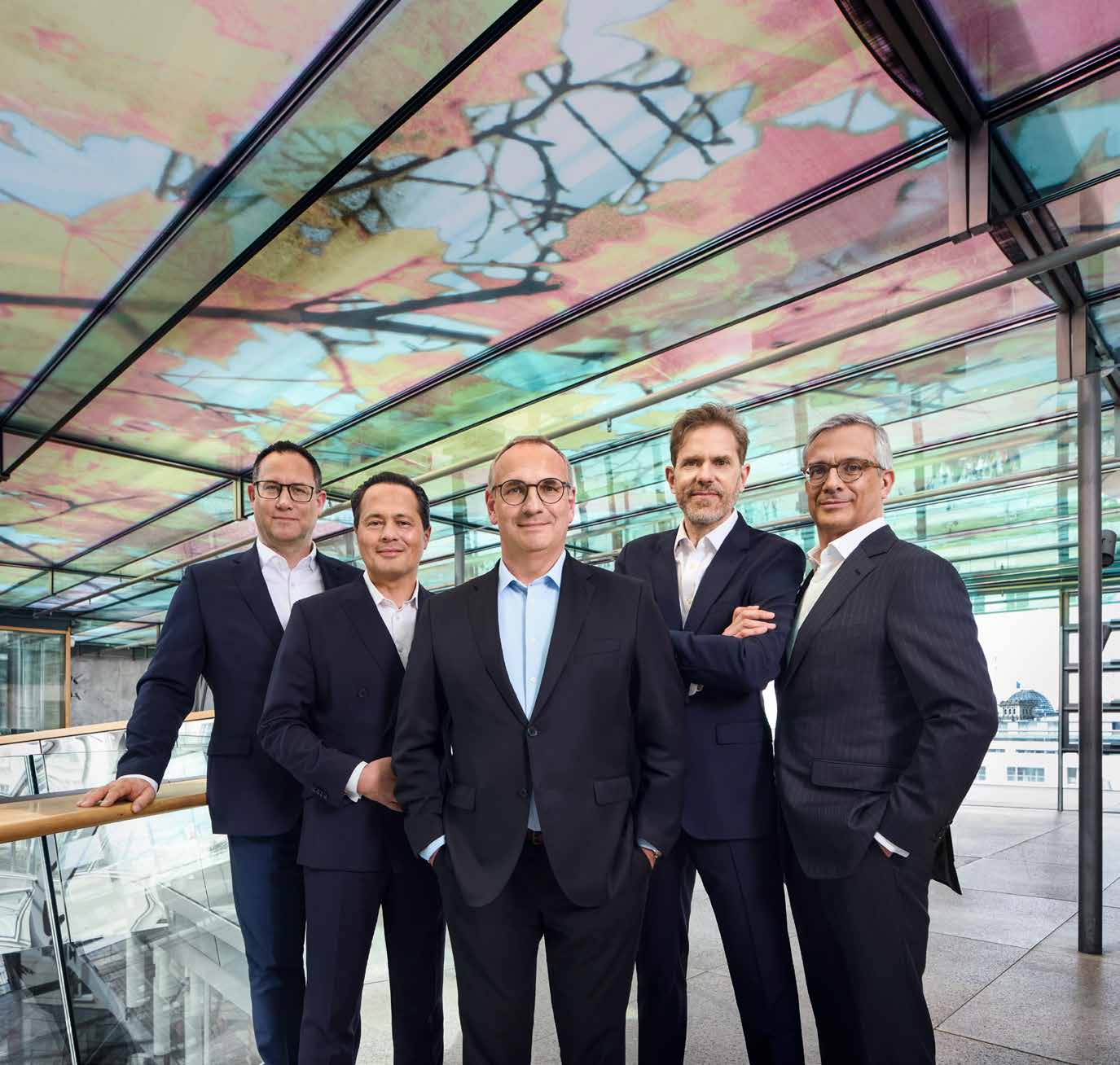Dear Readers,
2024 was a successful year for SEFE. We achieved profitable growth and laid the foundations for an even more successful future. We continued to transform our company at full speed, reaching several key milestones on the road to privatisation ahead of schedule. Furthermore, we developed new sources of supply and strategically expanded our existing ones. As a result, we now have a geographically diversified portfolio of long-term supply contracts from Europe and around the world. This diversified portfolio allows us to mitigate geopolitical risks and to supply secure and cost-effective energy to our approximately 50,000 domestic and international customers. We have also made decisive progress in the field of decarbonisation. With the acquisition of WIGA, we are actively promoting the development of Germany’s hydrogen infrastructure. At the same time, we are strengthening our position through targeted investments in strategic partnerships around hydrogen, sending a clear signal that we are at the forefront of the energy transition.
Our operational success and progress across all business areas is also reflected in our financial performance. Despite a weak economic environment, we nearly doubled our gross operating profit by EUR 833 million to EUR 1,697 million in 2024. Factors that contributed to this significant increase included structured trading in LNG, gas and power, as well as the optimal utilisation of our gas storage facilities. The sharp rise in gross operating profit was also driven by higher margins from emissions trading due to growing demand related to the energy transition, our diversified product portfolio, and the successful settlement of litigation and the associated reversal of provisions. Our EBITDA rose from EUR 430 million in 2023 to EUR 1,127 million in 2024, an increase of EUR 697 million. At EUR 637 million, our result for the period not only significantly exceeded the previous year’s figure (2023: EUR -187 million), but was also positive for the first time since 2021, driven by our net operating result. In 2024, SEFE demonstrated that profitability and societal benefit can be successfully combined.
SEFE outperformed expectations in 2024, surpassing the projections of the restructuring plan drawn up in the crisis year of 2022. In a very short period of time, we have accomplished more than just a successful repositioning and diversification of our supply portfolio; we have also restructured our business model and corporate organisation to become more resilient. Today, SEFE is an international energy company with approximately 2,000 employees that operates along the entire energy value chain – from origination and trading to sales, transport and storage – and stands for energy security in Germany, the United Kingdom and Europe as a whole.
Ensuring security of supply through successful partnerships
The security of supply in Germany and Europe is our mission. To this end, we place particular emphasis on the affordability of the services we optimise for our customers, in line with our legal obligations. Whether it is conventional energy sources that are still indispensable today, such as natural gas, or the climate-neutral energy sources of the future, such as hydrogen: we see it as our task as an energy company to provide businesses with affordable energy to ensure their competitiveness. In 2024, SEFE entered into numerous partnerships across multiple energy sources, origins and regions.
Our new partnerships include long-term supply contracts with LNG producers, such as Oman LNG and ADNOC (United Arab Emirates) from the Middle East. The agreement with ADNOC covers an annual volume of one million tonnes of LNG for a period of 15 years and shows that decarbonisation and LNG are not mutually exclusive: ADNOC’s LNG will be produced at the new Ruwais plant in Abu Dhabi, which will be powered entirely by green electricity. From 2028, this will mean one million tonnes of low-carbon energy annually for Europe’s households, industry and mobility. Meanwhile, Oman LNG will supply SEFE with 0.4 million tonnes of LNG per year between 2026 and 2029. This contract represents a milestone in the strategic energy partnership between Germany and Oman, as SEFE is the first German company to purchase Omani LNG.
Whether it is the flexible procurement of natural gas via ConocoPhillips or the short-term delivery of LNG from Africa through our partner Angola LNG: these new supply agreements, together with large volumes of natural gas from our Norwegian partner Equinor, will help us to meet our customers’ annual demand of around 20 billion cubic metres of natural gas.
Investing in the energy transition
We have also taken further significant steps towards making the energy transition a reality. In 2024, we entered into our first hydrogen partnership with Eletrobras, Brazil’s largest energy producer. Our focus is on the affordability of this future source of energy, as customers and companies will benefit only if hydrogen can be offered at competitive prices. From 2030, Eletrobras is set to supply Germany with around 200,000 tonnes of green hydrogen annually, produced using hydroelectric power. In addition, we are planning to source a further 200,000 tonnes of green hydrogen per year from the Saudi energy producer ACWA Power, also starting in 2030. In early 2025, we signed a corresponding agreement, with the objective of creating the first German-Saudi hydrogen bridge. SEFE, as co-investor and main buyer, plans to leverage its position as one of Europe’s largest energy traders to market green hydrogen to German and European customers. Both partnerships, which provide valuable options to meet Germany’s growing demand for green hydrogen, are key building blocks for decarbonising the German economy and achieving Europe’s climate goals. SEFE is therefore one of the first companies to make hydrogen available in Germany at competitive prices.
Another major milestone on our journey to becoming a fully integrated energy company was the complete acquisition of WIGA in 2024. WIGA comprises the gas network operators GASCADE and NGT, which together operate regulated networks with a combined length of around 4,200 kilometres in Germany. This transport infrastructure is already an important component in securing Europe’s energy supply today. In the future, once it has been refitted to transport hydrogen, it is also expected to make a decisive contribution to the decarbonisation of the European economy, for example through the conversion of gas transmission pipelines as part of the ‘Flow – making hydrogen happen’ project. At the same time, the incremental revenue resulting from the acquisition of WIGA will allow us to make future investments in hydrogen.

